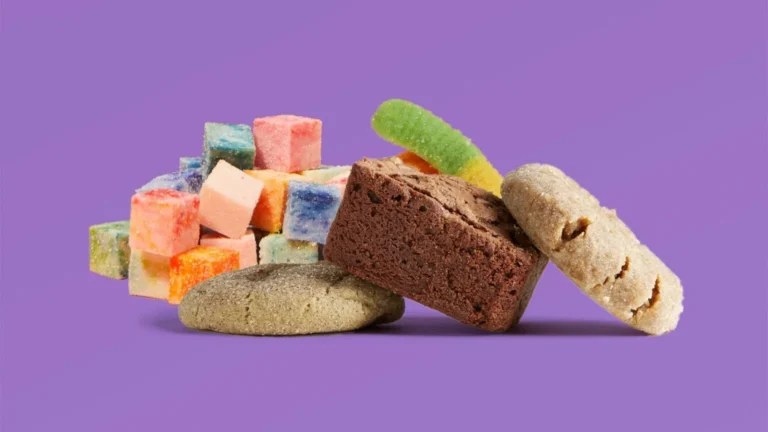How Much Delta 8 Is Equivalent To Delta 9
As cannabis-derived products gain widespread popularity, many users—both novice and experienced—wonder: “How much Delta 8 equals Delta 9?” While both Delta 8 and Delta 9 THC (tetrahydrocannabinol) are cannabinoids derived from cannabis, they deliver distinct experiences. Understanding their differences in potency, effects, and dosage is essential for users looking to customize their experience.
Delta 8 vs. Delta 9: Potency and Molecular Structure
Delta 8 and Delta 9 THC share similarities but differ slightly in molecular structure. This subtle distinction significantly impacts how they interact with the body’s endocannabinoid system (ECS), particularly CB1 receptors in the brain. Delta 9 THC binds more strongly to these receptors, producing the intense psychoactive effects often associated with cannabis. Delta 8, on the other hand, binds less robustly, delivering a milder, clearer high that many users find less anxiety-inducing.
Due to this difference, Delta 8 is approximately 50–60% as potent as Delta 9 THC. For example, if 10 mg of Delta 9 THC provides a certain level of psychoactivity, achieving a similar effect with Delta 8 may require around 15–20 mg.
Tailoring Dosage Based on Individual Factors
While these general guidelines offer a starting point, responses to Delta 8 and Delta 9 vary significantly. Factors such as tolerance, body weight, and individual sensitivity play a crucial role in determining how each cannabinoid affects a person. Users are encouraged to start with a low dose, monitor their reactions, and adjust as needed to achieve the desired experience.
Whether you’re exploring the gentle effects of Delta 8 or the stronger impact of Delta 9, understanding their differences ensures a more informed and enjoyable experience.
Comparing Effects: Delta 8 vs. Delta 9
Delta 8 and Delta 9 offer distinct experiences, differing in intensity and the nature of their effects. Delta 9 is renowned for delivering a potent euphoric high, often accompanied by bursts of laughter, heightened sensory awareness, and creative energy. However, it can also bring about less desirable effects, such as anxiety, paranoia, or an increased heart rate, particularly at higher doses.
In contrast, Delta 8 is favored for its more subdued and balanced effects. Users often describe it as providing a smoother experience, promoting mental clarity and physical relaxation without the heightened intensity or anxiety risks associated with Delta 9. Thanks to its milder psychoactive profile, Delta 8 is a popular choice for THC newcomers or those seeking a gentler high that enhances mood, induces mild euphoria, and encourages relaxation.

Determining Equivalent Dosages
Since Delta 8 is typically less potent than Delta 9, users often need to adjust their dosages to achieve similar effects. For instance, a 10 mg dose of Delta 9 might provide significant effects for an experienced user, while they may need 15-20 mg of Delta 8 to experience a comparable intensity. As a general guideline, it’s recommended to start with a lower dose and gradually increase to gauge personal tolerance, reducing the risk of an overwhelming experience.
The method of consumption plays a key role in both potency and onset time. Edibles, for example, tend to have a delayed onset but are usually more potent, as the liver metabolizes THC in a way that amplifies its effects. Whether using Delta 8 or Delta 9, considering these factors is essential to achieving the best experience.
Safety Considerations and Legal Landscape
It’s important to understand that Delta 8 and Delta 9 THC have distinct legal standings. Delta 9 THC is federally illegal but is allowed in many states for medical or recreational use. In contrast, Delta 8, derived from hemp, is federally legal but faces restrictions in certain states. Therefore, users should verify local regulations before purchasing or using either cannabinoid.
Regarding safety, being mindful of individual tolerance is essential. Although Delta 8 is generally milder, taking large amounts or combining it with other THC products may lead to undesirable side effects. To avoid overconsumption, it’s wise to monitor intake and refrain from using high doses of both Delta 8 and Delta 9 together, ensuring a safe and enjoyable experience.
Final Thoughts
Understanding the dosage equivalence between Delta 8 and Delta 9 is valuable for navigating the diverse THC product market, allowing users to adjust their intake to reach their desired effects. While Delta 8 provides a gentler alternative to Delta 9, careful dosing is critical, particularly for individuals with lower tolerance or limited experience with THC. By taking a mindful approach to dosage, users can enjoy the distinct effects of each cannabinoid while making choices that match their preferences and comfort levels.




